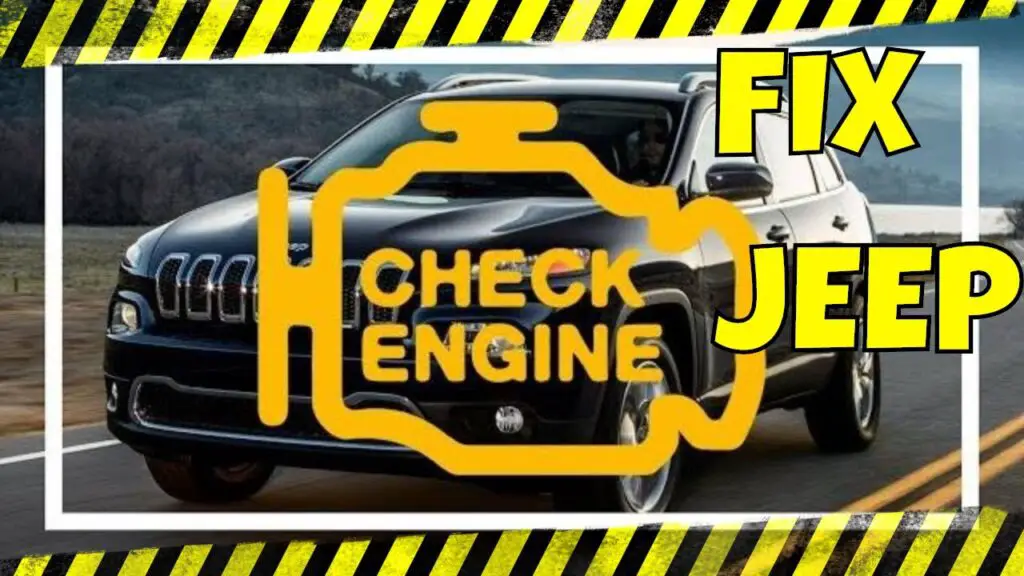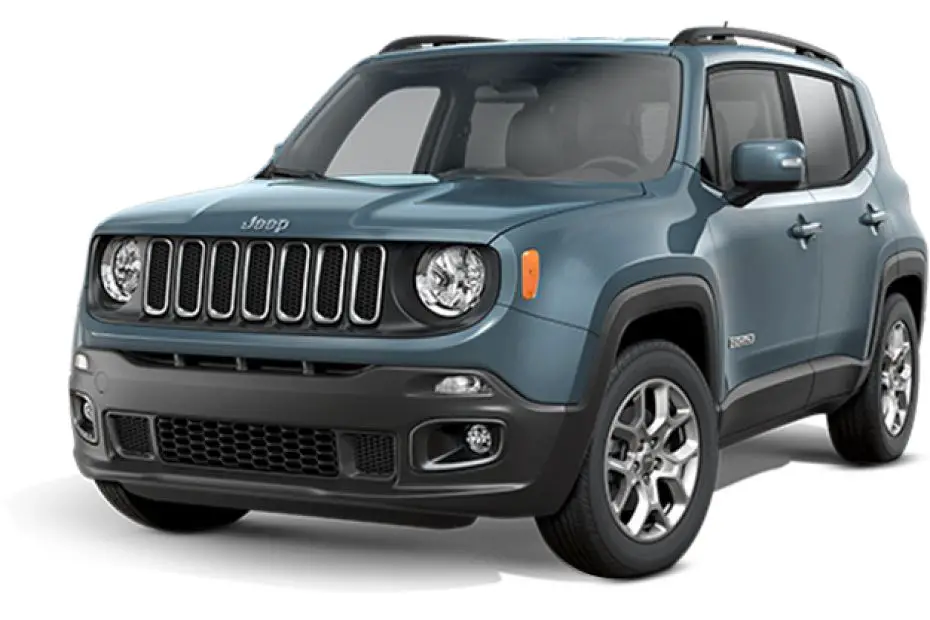If your Jeep Grand Cherokee's check engine light is on, it could indicate issues with the emissions control system, fuel injection, or oxygen sensor. Ignoring the warning may lead to costly engine damage, so it's advisable to have your vehicle checked promptly.
Common reasons for the check engine light include faulty sensors, dirty airflow sensors, or malfunctioning spark plugs. Driving with the light on is possible, but it's recommended to address the issue promptly to prevent further damage. Remember, a flashing check engine light signals a more urgent problem that requires immediate attention.
Stay proactive and have your Jeep inspected to ensure optimal performance and prevent potential issues down the road.
Common Causes Of Jeep Grand Cherokee Check Engine Light
If your Jeep Grand Cherokee's check engine light is on, common causes could be a faulty emissions control part, fuel injection system malfunction, or damaged oxygen sensor. It's crucial to address these issues promptly to prevent potential damage to the engine.
Make sure to get your Jeep checked quickly to avoid any major problems.
If you are a Jeep Grand Cherokee owner, you might have experienced the frustration of seeing the check engine light come on. Not only is it an inconvenience, but it can also be a sign of a potentially serious problem. In this section, we will explore some of the common causes of Jeep Grand Cherokee check engine light and what they mean for your vehicle.
Faulty Oxygen Sensor
One of the most common reasons for the check engine light to come on in a Jeep Grand Cherokee is a faulty oxygen sensor. This sensor is responsible for monitoring the amount of oxygen in the exhaust system and ensuring that the engine is running efficiently. A faulty oxygen sensor can lead to decreased fuel efficiency and increased emissions, so it's important to have it replaced as soon as possible.
Loose Gas Cap
Believe it or not, something as simple as a loose gas cap can trigger the check engine light in your Jeep Grand Cherokee. This is because a loose gas cap can cause the fuel system to lose pressure, which can lead to increased emissions. If you notice that your check engine light is on and you recently filled up your gas tank, it's worth checking to make sure that the gas cap is securely tightened.
Catalytic Converter Issues
Another potential cause of the check engine light in your Jeep Grand Cherokee is an issue with the catalytic converter. This component is responsible for converting harmful pollutants in the exhaust system into less harmful emissions. If the catalytic converter is not functioning properly, it can lead to increased emissions and decreased fuel efficiency.
In some cases, a faulty catalytic converter may need to be replaced entirely. Overall, it's important to take the check engine light in your Jeep Grand Cherokee seriously. While it may be caused by something as simple as a loose gas cap, it can also indicate a more serious issue with your vehicle. By addressing the issue promptly, you can help to prevent further damage and keep your Jeep Grand Cherokee running smoothly.

Credit: m.youtube.com
Signs And Symptoms To Watch Out For
If you own a Jeep Grand Cherokee, being aware of the signs and symptoms related to the check engine light is crucial for maintaining the vehicle's health and performance. Ignoring potential issues indicated by the check engine light can lead to costly repairs and decreased fuel efficiency. Here are the key signs and symptoms to watch out for:
Flashing Check Engine Light
A flashing check engine light on your Jeep Grand Cherokee is a critical warning sign that should not be ignored. It often indicates a severe issue, such as a misfiring engine, which can cause damage to the catalytic converter. Immediate attention from a qualified mechanic is essential to prevent further damage.
Reduced Fuel Efficiency
If you notice a sudden decrease in fuel efficiency on your Jeep Grand Cherokee, it could be a sign of a potential problem triggering the check engine light. Reduced fuel efficiency may be caused by various issues, such as a faulty oxygen sensor or a malfunctioning fuel injection system.
Strange Noises Or Vibrations
Unusual noises or vibrations coming from your Jeep Grand Cherokee could be related to the check engine light. These symptoms may indicate issues with the engine, exhaust system, or other critical components. Addressing these symptoms promptly can prevent further damage and costly repairs.
Diy Methods To Address The Issue
When it comes to dealing with the Jeep Grand Cherokee check engine light, there are some DIY methods you can try before heading to the mechanic. These methods can help you identify and potentially resolve the issue causing the check engine light to illuminate. Here are some DIY approaches you can take to address the problem:
Tightening The Gas Cap
If the check engine light in your Jeep Grand Cherokee suddenly comes on, the first thing to check is the gas cap. A loose or damaged gas cap can trigger the check engine light. Start by ensuring the gas cap is securely tightened. If the cap is damaged, replacing it with a new one can often resolve the issue.
Checking The Oxygen Sensor
The oxygen sensor plays a crucial role in monitoring and adjusting the air-fuel mixture in your vehicle. A faulty oxygen sensor can cause the check engine light to illuminate. Using an OBD-II scanner, you can check the sensor's readings and replace it if necessary to address the issue.
Inspecting The Catalytic Converter
The catalytic converter helps reduce emissions from the exhaust system. A malfunctioning catalytic converter can trigger the check engine light. Inspect the converter for damage or clogging and replace it if needed to resolve the issue.

Credit: www.youtube.com
When To Seek Professional Help
Persistent Check Engine Light
If your Jeep Grand Cherokee engine light stays on for an extended period, it's a clear indication that there's an underlying issue that needs immediate attention. Ignoring a persistent check engine light could lead to severe damage to the vehicle's components.
Unusual Smells From The Exhaust
Another sign that you should seek professional help for your Jeep Grand Cherokee check engine light is the presence of unusual smells emanating from the exhaust. This could be an indication of a more serious problem that requires expert diagnosis and repair.
Engine Stalling
If your engine is stalling, especially when combined with the check engine light being illuminated, it's crucial to seek professional help immediately. Engine stalling can be a serious safety concern and should not be ignored.
Importance Of Addressing The Check Engine Light
When the check engine light in your Jeep Grand Cherokee comes on, it’s crucial to address the issue promptly to prevent further damage, maintain vehicle performance, and ensure safety.
Preventing Further Damage
Ignoring the check engine light can lead to more extensive and costly repairs. Addressing the issue early can prevent further damage to the engine and other critical components of your Jeep Grand Cherokee.
Maintaining Vehicle Performance
The check engine light is an indicator of potential issues that can impact the performance of your Jeep Grand Cherokee. Addressing the light promptly ensures that your vehicle continues to operate at its optimal level.
Ensuring Safety
Addressing the check engine light is essential for ensuring the safety of both you and your passengers. Ignoring the light can lead to potential safety hazards while driving your Jeep Grand Cherokee.
Cost Estimates For Repairing Common Causes
When dealing with a Jeep Grand Cherokee check engine light, the cost estimates for repairing common causes, such as faulty emissions control parts, fuel injection system malfunctions, damaged oxygen sensors, or dirty mass airflow sensors, can vary. It's crucial to address the issue promptly to avoid potential major engine damage.
For accurate diagnostics and repairs, it's recommended to consult a professional mechanic.
Cost Estimates for Repairing Common Causes of Jeep Grand Cherokee Check Engine Light If you own a Jeep Grand Cherokee, you might have experienced the check engine light coming on at some point. The check engine light in your Jeep Grand Cherokee is an indicator that something is wrong with your vehicle's engine or the emission system.
It could be something as simple as a loose gas cap or something more severe like a damaged catalytic converter. In this blog post, we will discuss the cost estimates for repairing common causes of Jeep Grand Cherokee check engine light. We will focus on three common causes of the check engine light: oxygen sensor replacement, gas cap replacement, and catalytic converter repair.
Oxygen Sensor Replacement
One of the most common reasons for the check engine light to come on is a faulty oxygen sensor. The oxygen sensor measures the amount of oxygen in the exhaust gases and sends the data to the engine control module to adjust the air/fuel ratio. A faulty oxygen sensor can cause poor fuel economy, rough idling, and increased emissions. The cost of replacing an oxygen sensor in a Jeep Grand Cherokee ranges from $150 to $400, including parts and labor. The cost may vary depending on the location of the sensor and the type of sensor needed.
Gas Cap Replacement
Another common reason for the check engine light to come on is a loose or damaged gas cap. The gas cap seals the fuel system and helps maintain the correct pressure in the fuel tank. A loose or damaged gas cap can cause fuel vapors to escape, which can trigger the check engine light. The cost of replacing a gas cap in a Jeep Grand Cherokee is relatively low, ranging from $10 to $50. However, if the check engine light is still on after replacing the gas cap, there might be another issue with your vehicle that needs attention.
Catalytic Converter Repair
The catalytic converter is an essential component of the emission system in your Jeep Grand Cherokee. It converts harmful gases into less harmful ones, reducing the vehicle's emissions. A damaged catalytic converter can cause a decrease in performance, reduced fuel economy, and even engine damage. The cost of repairing or replacing a catalytic converter in a Jeep Grand Cherokee ranges from $500 to $2500, depending on the severity of the damage and the type of converter needed.
It's important to have your catalytic converter inspected regularly to avoid costly repairs or replacements. In conclusion, if your Jeep Grand Cherokee's check engine light comes on, don't panic. It could be a simple fix like a loose gas cap or a more severe issue like a damaged catalytic converter. By understanding the common causes of the check engine light and the cost estimates for repairing them, you can make an informed decision about your vehicle's maintenance.
Tips For Preventing Check Engine Light Issues
Regular maintenance is crucial to prevent check engine light issues in your Jeep Grand Cherokee. Ensure timely oil changes, filter replacements, and overall vehicle inspections to keep your engine running smoothly.
Opt for high-quality fuel for your Jeep Grand Cherokee to avoid potential engine problems that could trigger the check engine light. Quality fuel can help maintain the engine's performance and efficiency.
Stay vigilant for any unusual sounds, odors, or performance changes in your Jeep Grand Cherokee. Addressing warning signs promptly can prevent more significant issues that may lead to the check engine light coming on.

Credit: www.reddit.com
Frequently Asked Questions
Why Is My Check Engine Light On In My Jeep Grand Cherokee?
The check engine light in your Jeep Grand Cherokee could be on due to issues like a faulty emissions control part or a malfunction in the fuel injection system. It's important to get it checked promptly to prevent potential damage to your engine.
Can I Drive My Jeep With The Check Engine Light On?
Yes, you can drive your Jeep with the check engine light on, but it's best to get it checked promptly to avoid potential engine damage.
What Is The Most Common Reason For Check Engine Light?
The most common reason for the check engine light is a failing oxygen sensor. It's important to address this promptly to maintain the vehicle's exhaust system.
How Bad Is A Solid Check Engine Light?
A solid check engine light indicates a potential issue. It's best to schedule a diagnostic appointment to address it promptly.
What Causes The Check Engine Light To Come On In A Jeep Grand Cherokee?
The check engine light may come on due to issues like faulty emissions control parts or a malfunctioning fuel injection system.
Conclusion
If your Jeep Grand Cherokee's check engine light is on, it's important to address it promptly. Ignoring the warning could lead to significant engine damage. With the potential causes ranging from faulty emissions control parts to damaged oxygen sensors, it's crucial to have your vehicle checked by a professional.
Don't hesitate to address this issue for the long-term health of your Jeep.






